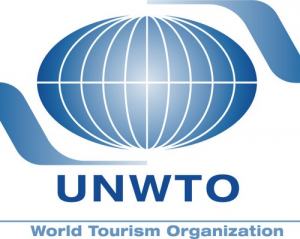The World Tourism Organization (UNWTO) announced on July 7th that it will be coming together with Spain to organize the First International Congress on Ethics and Tourism. The conference will be held on the 15th and 16th of September in Madrid and will cover issues such as responsible tourism, fair tourism and poverty reduction, and the role of the private sector in sustainable tourism. For those of you not in the know (as I was about 45 minutes ago), a Global Code of Ethics for Tourism was adopted by the General Assembly of the World Tourism Organization in 1999 and by the United Nations 2 years later. One of the main goals of this conference is to bring awareness of the Code of Ethics to the tourism industry and to the general public, which will hopefully then increase responsible and sustainable tourism.
later. One of the main goals of this conference is to bring awareness of the Code of Ethics to the tourism industry and to the general public, which will hopefully then increase responsible and sustainable tourism.
The Code of Ethics has 10 principles, which cover the economic, social, cultural, and environmental aspects of tourism. They are, in brief:
- Tourism’s contribution to mutual understanding and respect between peoples and societies
- Tourism as a vehicle for individual and collective fulfillment
- Tourism, a factor of sustainable development
- Tourism, a user of the cultural heritage of mankind and contributor to its enhancement
- Tourism, a beneficial activity for host countries and communities
- Obligations of stakeholders in tourism development
- Right to tourism
- Liberty of tourist movements
- Rights of the workers and entrepreneurs in the tourism industry
- Implementation of the principles of the Global Code of Ethics for Tourism
(For a more in-depth description of the principles, click here.)
Basically, the Code of Ethics is intended to be a guideline to reduce the negative impact tourism can have on the environment and on local communities. Ideally, tourism brings money and growth to the host community, but in reality tourism is often a bleak industry. The environment is destroyed, foreign workers brought in, and cultural heritages manipulated. For example, last summer I spent a week in Colorado for a family reunion and one of our outings was to historic Manitou cliff dwellings. Seems like an innocent trip, right? Wander through some cliff dwellings, look at native plants, learn a little bit, and buy some moccasins. One hitch: the cliff dwellings are absolutely not historic. The Anasazi Indians actually lived several hundred miles away in the Four Corners area—the same area the building stones for the Manitou dwellings were taken from. The stones were shipped to Manitou and used to build the fake dwellings, which were then presented as authentic. The set-up was intended only to draw tourists, and while it certainly succeeded, what was the cost? Relics were taken from their true site, shipped hundreds of miles, and a false history was presented to anyone who would listen.
Of course, that is just a mild example of cultural exploitation and the potential dangers of tourism. But with international tourism forecasted to reach 1.6 billion travelers by 2020, something needs to be done to ensure that the local communities and the environment benefit from the industry, and that the tourism is sustainable. That’s why the Code of Ethics and the conference are so important. Tourism is a massive industry and will continue to grow, and so it has the potential to bring much-needed jobs and economic growth and development. The conference will hopefully go a long way towards spreading information about the Code and the ways in which responsible and sustainable tourism can benefit a community, but it won’t be enough to spark a huge change. Tourists and tourism providers have a lot of work to do before the tourism industry lives up to the standards set in the Code of Ethics. But hopefully this conference will provide a starting point and help shed some light into the complex business that is responsible tourism.
Michelle Bovée is a SISGI Group Program and Research Intern focused on international affairs, economic development, and responsible tourism. To learn more about the SISGI Group visit www.sisgigroup.org


